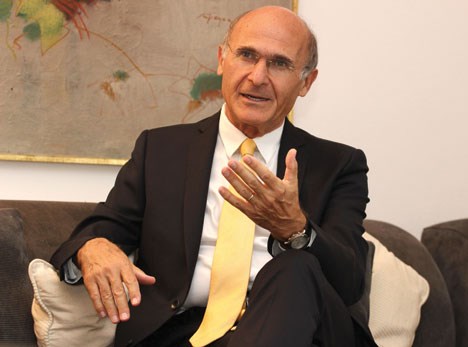The first Macedonian Foreign Minister Denko Maleski, who was a strong contender to be the SDSM presidential candidate in the 2019 elections, published an editorial in which he agrees with the Bulgarian position that Macedonians and Bulgarians “were the same people”.
The editorial was published at a time when Bulgaria is requesting a number of concessions from Macedonia ahead of the coming European Council when Macedonia expects to be finally given a date to open EU accession talks. Bulgaria points to the 2017 Zaev – Borisov treaty, under which Macedonia agreed to rewrite much of its history in line with the Bulgarian positions and drop its claim to a Macedonian minority in Bulgaria. Most controversially – Bulgaria insists that according to this treaty the Macedonian language should be referred as the “official language of the Republic of North Macedonia”. Bulgaria claims that the Macedonian is just a western dialect of the Bulgarian language.
We are past the time when Macedonian history was protected by the powerful Yugoslav federation and could without pressure and selectively choose the building blocks of the Macedonian nation, and could cross out the mentions of “Bulgarian” and write “Macedonian” instead. You can now go to the New York Times and read their archives from 1903, where they write about the rebellion of the Bulgarian population in Krusevo on Ilinden. We have to adapt to a historic truth that in the past we were part of a same people, Maleski writes.
The article caused a major disturbance in Macedonia given that Maleski is a prominent voice on the left, but is also best known as a die-hard supporter of keeping Macedonia in the Serbia dominated Yugoslavia. His father, writer Vlado Maleski, wrote the lyrics to the Macedonian anthem “Today over Macedonia” (which is also being disputed as part of the series of Zaev concessions and redefinition of the Macedonian national identity), written to replace the “Rise Dawn” anthem which was declared as “Bulgarian” by the Yugoslav authorities. This is not the first time Maleski plays the national identity card – in 2019 he used a report that his mother may have been an ethnic Albanian to promote his presidential candidacy.
His latest article was widely reported in Bulgaria, just as was the previous statement from President Stevo Pendarovski, that national liberation heroes like Goce Delcev were “Bulgarians who fought for Macedonia”. Maleski describes the process of the creation of a separate Macedonian nation as a recent event, driven by the humiliations and pressures from neighboring countries and the desire to liberate itself from Ottoman rule.
Understandably, at the moment it was constituted, the Macedonian nation turned toward what divides it from the Bulgarian nation, and such historical elements can always be found when local patriotism would overcome the national idea for a Bulgarian state. Our history is full of such examples, but that approach doesn’t tell the whole truth. Former methods of willful, false selection by the scientists and the brutal behavior toward our fellow citizens with a Bulgarian consciousness are unacceptable today, Maleski writes.
Historically, the pro-Yugoslav left in Macedonia has been the perpetrator of attacks against both Macedonians who supported the creation of an independent Macedonian nation state, and those who would identify as Bulgarian. But more recently, the left has tacked on the process of redefining the Macedonian nation, which has been embraced by countries such as Greece and Bulgaria. Meanwhile, the right has taken the position to view the Macedonian nation not as a newly created concept but the result of thousands of years of history, just as other Balkan nations view themselves. This push, embodied in the renewal of the capitol Skopje and in education reforms, was strongly rejected by the left during its Colored Revolution and is now being reduced.
Meanwhile, as the controversy over Bulgaria’s position toward the EU accession talks grew, Prime Minister Boyko Borisov did an interview with Sitel TV in which he focused the Bulgarian requests on the joint commission of historians, demanding that it resumes work as soon as possible and prepares joint positions on many historic figures such a s Goce Delcev who Bulgaria insists were ethnic Bulgarians.





Comments are closed for this post.